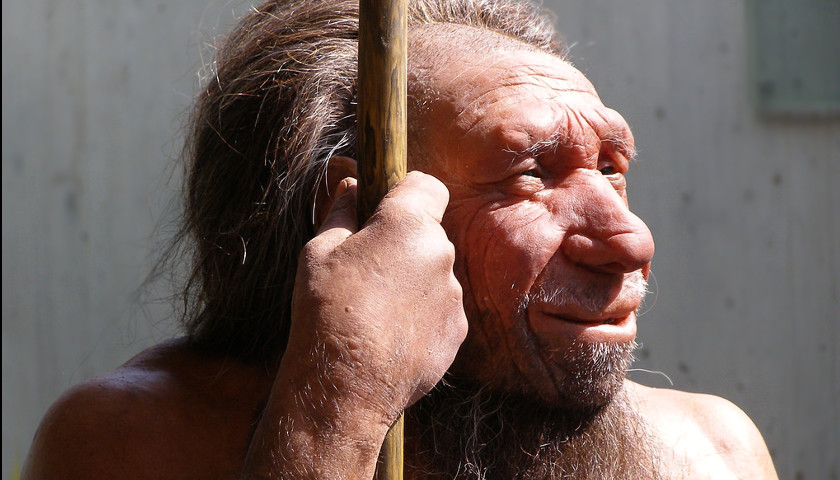by Chris White
Researchers believe the remains of a one million-year-old jawbone found deep in a Spanish cave could be one of the oldest known human fossils ever discovered, the Daily Mail reported Monday.
The Homo antecessor skeleton, which has been dated to an estimated 772,000 to 949,000 years old, is the final common ancestor shared between Neanderthals and Homo sapiens. The finding also pushes back previous estimates for the split between modern humans and Neanderthals, an extinct species.
 It also suggests the evolution of modern human species may have taken much longer than estimates from genetic studies. Previous studies, based on genetics, showed that modern humans and Neanderthals split around 516,000 years ago.
It also suggests the evolution of modern human species may have taken much longer than estimates from genetic studies. Previous studies, based on genetics, showed that modern humans and Neanderthals split around 516,000 years ago.
“We faced many challenges during this study, and without the active participation of all these specialists, it would not have been possible to obtain any meaningful and reliable result,” explained Dr. Mathieu Duval of the Australian Research Centre for Human Evolution (ARCHE).
Duval worked with fellow ARCHE scientist, Professor Rainer Grün, and a team of researchers to accurately date the Homo antecessor remains using one of its teeth. The age of the jawbone prevented the researchers from using carbon dating to accurately estimate the skeleton’s age.
They used Electron Spin Resonance (ESR), which allowed Duval and his team to measures the dose of natural radiation the tooth enamel in the jaw received over the course of one million years. The technique was previously only used on large mammals but has more recently been adapted for use on human teeth.
“We had to use the most advanced analytical techniques to date this tooth fragment and had to go several times to the site in order to accurately reconstruct the sedimentary environment,” Duval added.
The Homo antecessor is one of the earliest known varieties of humans discovered in Europe. The latest findings reveal that the Homo antecessor “pre-dates the estimated divergence age of modern and archaic human lineages” by as much as 433,000 years.
Recent studies showed similar inconsistencies. A 2017 study from the Max Planck Institute for Evolutionary Anthropology in Germany found the fossilized remains of five early humans discovered in Morocco suggest the human species is at least 100,000 years older than previously thought.
The study suggests humans evolved across the African continent, not in a small region as previously believed. Scientists dated the fossils to between 300,000 and 350,000 years old and the skulls found are almost identical to those belonging to modern humans.
Previously, the earliest modern human fossils found in Ethiopia were dated to be around 195,000 years old. Scientists believed modern humans evolved suddenly from more primitive human populations in East Africa.
– – –
Chris White is a reporter at Daily Caller News Foundation. Follow Chris White on Facebook and Twitter.





This is a hoax. Evolution is a godless theory. The earth was created less then one million years ago.